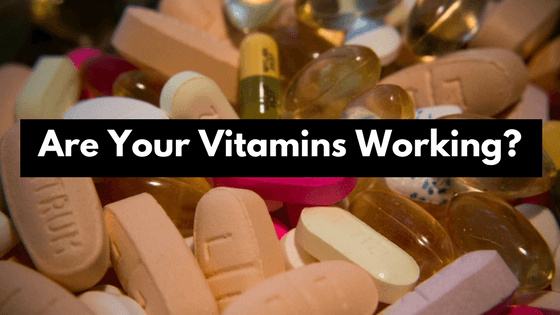I am frequently asked why we should take any particular supplements and how we know they work.
First, I’ll give you the short answer to the second question: ”We don’t know if they work.”
![]()
Yes, I believe everyone needs supplements and, while there is voluminous evidence, on an individual basis, you don’t know if they work for you.
You don’t know if the extra dose of vitamin C or oscillococcinum or echinacea stopped that cold you were about to get. You don’t know if the cold you did get could have been much worse if you hadn’t taken some or all of those things.
More important, you don’t know—and you’ll never know– about the heart attack or stroke you didn’t have or the cancer you didn’t get or the Alzheimer’s disease that didn’t strike you because you took fish oil, curcumin or any other supplement.
We all need supplements. Way back in the 1930s, scientists warned the U.S. government that our soil was severely depleted in essential nutrients, particularly minerals and trace minerals. Considering the abuse of our soils and lands in the past 80 years, it’s safe to assume that the nutrient contents of our soils have further deteriorated.
Foods grown in nutrient-depleted soils, even those grown organically, aren’t as nourishing as those grown in rich, loamy fertile soil. They not only have lower levels of essential carotenoids, B and C vitamins, they are deficient in the essential minerals we need for all body processes, including the absorption of those vitamins and other nutrients.
We all want to eat as well as we possibly can, but no one is perfect. There will be times your diet isn’t as good as it could be, especially if you’ve been traveling, as I have been recently. (read: Dining out: Eat Smarter )
Look at it this way: A high quality whole food multivitamin supplement is an insurance policy. You don’t know if you would have needed it or not, but having it gives you peace of mind. That’s a small price to pay for a little insurance.
Even the staid old-school American Medical Association recommends a multi-vitamin for every Americans, regardless of age. Of course, they don’t tell you, “Don’t take that cheap crappy stuff that doesn’t even dissolve as it passes through your digestive system, much less give you any nutrients.”
I talk a high quality organically produced whole food multi-vitamin every day. I take additional whole food vitamin C.
I also take a liquid trace mineral supplement and fish oil.
I have been tested and my vitamin D levels are low (like most of us, especially in winter), so I take supplemental D and, since there is heart disease and Alzheimer’s in my family, I hedge my bets and take curcumin BCM-95.
I take all of these, without fail, every day, because I’ve studied the science and I know that virtually all of us need them, no matter how good and pure our diets may be.
I add in a few other things and I change it up from time to time, somewhat arbitrarily. To be honest, my regimen changes primarily because I forget why I was taking XYZ and so I move on to ZYX.
I am also very aware that the human body knows its needs, even if our conscious minds do not, so I will frequently muscle test to determine if a particular nutrient is needed.
I also thing that the whole vitamin molecules found in food are the best nutrients, not the synthetic molecules called “Vitamin C (ascorbic acid)” or “Vitamin A (beta carotene)” on supplement labels. Vitamin C is not ascorbic acid—it’s a whole combination of nutrients, including ascorbic acid, the cheap ingredient in most “vitamin C” supplements.
Mother Nature knows best! If I find myself craving cilantro, I’ll put a whole handful in my salad, know I need more of the vitamin K and B-vitamins cilantro possesses.
I’m fortunate that I can garden in the summer months and supplement my soil with all sorts of nutrients and grow the healthiest food possible. I often eat it right in the garden!
But that still may not be enough. That’s why I consider my supplements as an insurance policy. I hope you do, too.








Comments are closed.